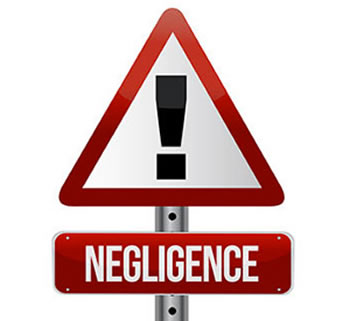Difference between Malpractice and Negligence
Key Difference: Negligence refers to a sense of duty that each individual has towards each other. However, if that duty is not followed, then it can be termed as negligence. Malpractice can be classified as a segment or a part of negligence, as negligence that causes harm is called malpractice. The terms are most commonly used in the context of medical practice, where they are termed as Medical Malpractice and Medical Negligence.
 Colloquially, these terms are often thrown around interchangeably. However, many people do not realize that each of the terms entails something specific. Negligence is an encompassing term that covers much more than malpractice. Malpractice, on the other hand has a much narrower scope.
Colloquially, these terms are often thrown around interchangeably. However, many people do not realize that each of the terms entails something specific. Negligence is an encompassing term that covers much more than malpractice. Malpractice, on the other hand has a much narrower scope.
Negligence refers to a sense of duty that each individual has towards each other. However, if that duty is not followed, then it can be termed as negligence. Let’s consider an example: as a person driving on the road, it is their responsibly to follow all the laws and to drive safely. If the person does not do that, then they can hurt somebody. This is negligence. It can also be said that when someone does not follow rules or laws and puts another at risk, irrespective of whether or not they were harmed, it is negligence.
Malpractice, on the other hand, refers to something slightly different. The term comes into play when negligence leads to harm. It can be classified as a segment or a part of negligence, as negligence that causes harm is called malpractice. The term is often only used in the context of licensed professionals, such as medical professionals, lawyers, accountants, etc. This is also the reason that malpractice is also often referred to as professional negligence.
Another difference between the two is regarding intent. In the case of negligence, intent can be present or not. However, in the case of malpractice, intent is usually present, which means that the person was negligent knowing full well that their actions may lead to harm; whereas in negligence, the person may or may not be aware that their actions may cause harm.
The terms are most commonly used in the context of medical practice. Here, they are termed as Medical Malpractice and Medical Negligence. They are also often used in the context of law. In both instances, the terminology is similar to the original definitions. Medical Negligence is when a doctor or medical professional gives treatment to a patient that fails to meet the accepted medical standard of care. The treatment may or may not have had adverse effect to the patient but because it did not follow the accepted rules of practice, it is medical negligence.
 Now incase medical negligence does lead to having adverse effect on the patient, then it can form the basis of a medical malpractice lawsuit. Medical malpractice is basically when treatment or care directly leads to illness or injury to the patient. This injury can be physical, emotional, or financial in nature.
Now incase medical negligence does lead to having adverse effect on the patient, then it can form the basis of a medical malpractice lawsuit. Medical malpractice is basically when treatment or care directly leads to illness or injury to the patient. This injury can be physical, emotional, or financial in nature.
In order to prove malpractice or negligence in a court of law, one must prove that the defendant (e.g. the doctor) had a duty or an obligation to the plaintiff, and that the defendant breached that duty. The plaintiff, i.e. the accuser, must also show proof of harm, in case it is present, and prove that the harm was directly caused by the defendant’s negligence.
Comparison between Malpractice and Negligence:
|
|
Malpractice |
Negligence |
|
Definition (Oxford Dictionaries) |
Improper, illegal, or negligent professional behavior: victims of medical malpractice |
Failure to take proper care over something: his injury was due to the negligence of his employers
Law: Breach of a duty of care which results in damage. |
|
Context |
When improper care or treatment that does not meet the standard of care is given leading to harm |
When improper care or treatment is given, irrespective is harm is caused or not |
|
Scope |
Related to a field of practice, such as law, medical, accounting, etc. |
Can be anyone doing anything. |
|
Result |
Usually results in harm |
May or may not result in harm |
|
Intent |
Usually with intent, i.e. knowing that it may cause harm |
Can be with or without intent. Most commonly, without intent of harm |
|
Courts |
Cases of malpractice are filed in civil courts |
Cases of negligence are filed in civil courts |
|
Examples |
A doctor not doing their duty according to medical standards leading to harm, or providing a wrong treatment, knowing that another treatment would be more effective. |
A driver running a red signal and hurting someone due to their carelessness. |
Reference: Oxford Dictionaries, SFSPA, Diffen.com Image Courtesy: attorneywdkickham.com, cubbon.com









Add new comment